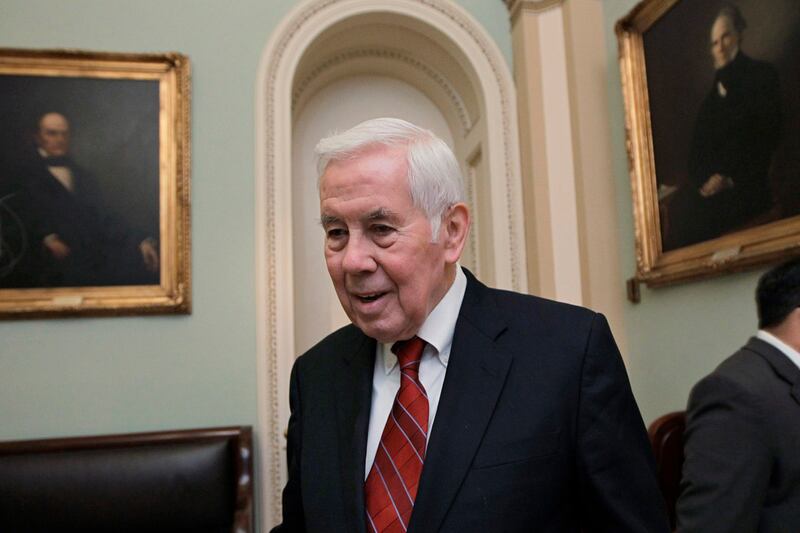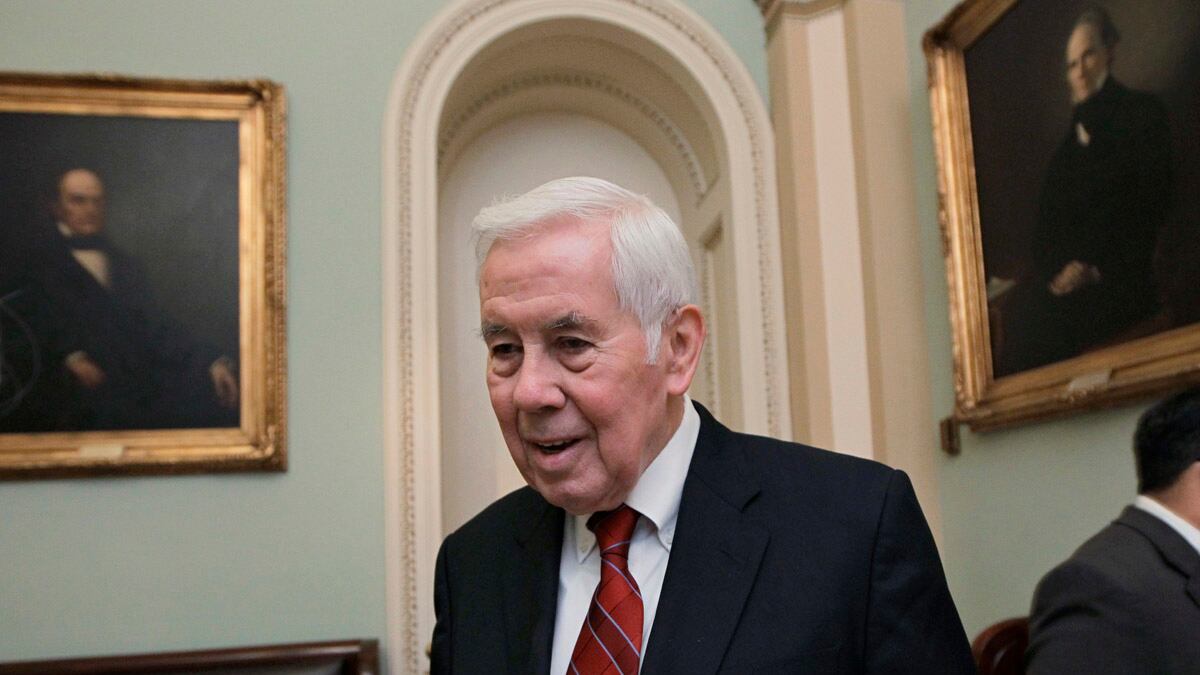Until now, Sen. Richard Lugar of Indiana has led a charmed life, breezing to reelection time after time since he arrived in Washington 35 years ago and established himself as a foreign-policy wise man and a trailblazer on nuclear disarmament. During the campaign of 2006—an election cycle in which his fellow Republicans lost 30 seats in the House, six in the Senate, and control of both chambers—Indiana’s Democrats didn’t even bother to field an opponent, and Lugar won with 87 percent of the vote.

A lot has changed since then. Rank-and-file Republicans are mad as hell—not only at Barack Obama (with whom Lugar became friendly and coauthored arms control legislation when Obama was a freshly minted senator) but also at an entrenched political establishment that seems more concerned with perpetuating itself than with fixing chronic problems. Lugar, who turns 80 in April and has decided to run for a seventh term, is suddenly an endangered species—a rare bipartisan moderate in an age of Tea Party absolutism.
“What we’re really seeing here is the erosion of the patience that American voters have historically had,” says former Utah senator Bob Bennett, a nominal conservative whose shocking ouster at his party’s 2010 state convention sent a terrifying message to incumbents everywhere. “The comment being made … is, ‘Well, you haven’t gotten it done for 36 years. What makes you think you can finally get it done in the next six years?’”
Lugar, who depending on which party holds the majority has been either chairman or ranking member of the Senate Foreign Relations Committee, attributes his predicament to a decision by Indiana’s disparate Tea Party groups to marshal their forces this time around. In 2010 the Tea Partiers’ backing of various candidates diluted their impact and allowed veteran Sen. Dan Coats, coming out of retirement, to slip through the GOP primary.
Shortly afterward, “I was campaigning for Republican candidates in the South Bend area,” Lugar recalls, “and I ran into reporters who said, ‘You understand that the Tea Party groups felt that they really didn’t achieve what they wanted to this time, and next time they are determined to consolidate all their efforts behind one candidate.’”
That candidate is Indiana State Treasurer Richard Mourdock, who also has been endorsed by such influential D.C.-based groups as FreedomWorks for America, the National Rifle Association, and the Club for Growth. The Club for Growth’s endorsement was particularly painful for Lugar, who believed he enjoyed a positive relationship with former Indiana congressman Chris Chocola, the group’s president. Kevin Brinegar, head of the Indiana Chamber of Commerce—one of the organizations that are backing the senator—goes so far as to say of Chocola: “A lot of people feel he stabbed Lugar in the back.”
Lugar, for his part, professes to be baffled. “I don’t know what it was about,” he says. “I felt I had a very good relationship with Chris Chocola and have been very supportive of him during his tenure as a member of our Indiana delegation. I don’t know if these are Chris’s private positions or whether he is serving the will of the Club for Growth.”
Chocola, who represented Indiana’s Second Congressional District from 2003 till he was tossed out in the Democratic landslide of 2006, is unapologetic. “I know and respect Dick Lugar, but the world has changed, and he has not been willing to change along with it,” he says. “It is clear to us that he’s not going to be part of the solution, he’s going to be part of the problem and perpetuate the culture that’s responsible for the mess we’re in.”
Thus, the white-maned Lugar is facing the first serious primary challenge of his Senate career and the very real prospect that he could lose on May 8. Lugar’s overwhelming cash advantage—$4 million in the bank compared with Mourdock’s $362,000 in the latest reporting period—is by no means guaranteed to last, given his status as a juicy target. “I’m glad I’m in my shoes and not his,” insists the 60-year-old challenger, who has been blasting Lugar as “out of touch with Hoosier values” and President Obama’s “favorite Republican.”
Mourdock and his followers have been highlighting the fact that although Lugar votes in Indiana, he hasn’t actually lived there since 1977, when he sold his home in Indianapolis, where he’d served two terms as mayor, and bought one in the posh Washington suburb of McLean, Va. Tea Partiers are appealing a recent ruling by Indiana’s election commission, supported by the attorney general, that Lugar’s residency is legitimate. Lugar, for his part, calls the controversy “a weak and lame issue” and argues that looking after the interests of his Indiana constituents requires him to live near the Senate. “When I went off to serve my country in the Navy,” he says, “it was exactly the same situation.”
Mourdock, mining his conservative-populist base, also cites Lugar’s support for Obama’s Supreme Court nominees, the pro-immigrant DREAM Act, the Strategic Arms Reduction Treaty with the Russians, the government bailouts for Wall Street and the auto industry, and his vote against a ban on congressional earmarks.
Lugar is scrambling, staying in Indiana hotels and campaigning hard when not attending to Senate business. He’s suddenly trying to position himself as a severe critic of Obama and an enemy of deficit spending. “Of course I’m energized,” he says. “I don’t know many members of the Senate who have more physical vigor. I don’t mean to be boastful, but I finished, once again, the three-mile Capital Challenge race last year”—his 30th—“and I had the temerity to raise my hands happily as I crossed the finish line.”
He recently replaced his longtime pollster, Linda DiVall, with New Jersey Gov. Chris Christie’s strategist, Adam Geller, “because I needed much more in-depth information, and the last polls I had seen from her were not helpful.” And for the first time in his career, he’s running a barrage of negative television ads against an opponent—hammering Mourdock for alleged absenteeism from official meetings involving state treasury business. “We plan to be on the air right straight through the primary, without surcease,” Lugar says.
It’s a perilous season not only for Lugar but for every Republican officeholder with a track record of reaching across the aisle to accomplish something. Utah’s six-term senior senator, Orrin Hatch, also is vulnerable this year, and Maine’s respected four-term centrist, Olympia Snowe, just threw in the towel, announcing her retirement with a parting shot at “my-way-or-the-highway ideologies.”
With his sterling record on arms control and the prospect of a nice life as a respected elder statesman, why would Lugar even put himself through the crucible of yet another election? A Washington wag suggests, unkindly: “There’s no better nursing home than the United States Senate.”
Lugar’s explanation: “I’m really excited by the work that I do. This is the opportunity of a lifetime, and I really cherish each day and the adventures that it brings, and the people in my life from all over the world, and the new challenges, both intellectually and physically. And I appreciate that.”
Former senator Alan Simpson, for one, says his old friend Dick shouldn’t be underestimated. “He’s ready for the fray,” Simpson says. “He’s going to put that big half-smile on his face, get his shoulders hunkered down, and he’ll give that guy”—Mourdock—“a good workout.”






